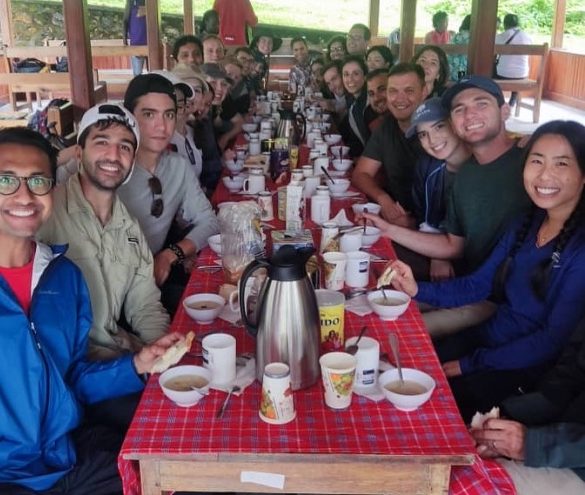One of our climber once said "..trekking Kilimanjaro is about the journey just as much as it's about the summit ".
To that end we at Everlasting Tanzania Travels believe that our Kilimanjaro preparatory programme should be holistic in nature and adapted and integrated to fit into your actual lifestyle choices.
Training for Kilimanjaro challenge is half the fun.
Our 4 Key Areas in training for Kilimanjaro
Blood Analysis
Put it simply, blood is the key to success, i.e. if your iron leve is off the scale your more prone to altitude related illness. To most people who are coming to Kilimanjaro, this is their first experience in high altitude (4600 metre and above) usually with little understanding of their physiology , through our blood analysis, you can find out how your body will perform in the Altitude. Our medical experts will give you markers and advise on the blood works.
Cardiovascular system
You need to train your heart and lungs so that your body can cope with the rigors of a high altitude expedition.
Hikes, frequent swimming, endurance training, cycling etc.
Immune System
he first thing altitude attack in your body is immune system, a fitter, well trained and well fed climber is less susceptible to fatigue. You need to strengthen your immune system with the food you eat and the training you do. That's your armory!
The Metabolic System
What you eat matters, at home and on the Mountain. Our food charts will show you how to gear up your system for the challenge. Our mountain menu is designed to boost your metabolism, increase your performance and level of oxygen uptakes.

Why it Matters
Do not be fooled by literature and Media, Kilimanjaro is the most taken for granted of all the 7 Summits, and while it doesn't require any technical skills, training and health assessment will ensure that you can fully enjoy your trip, increase you chance of reaching the summit and are less susceptible to Altitude.
No matter how fit you're training is still important, it's the altitude that's going challenge your body.
You'll need to commit yourself to a physical training regimen and that requires some discipline.
We recommend a varied physical routine to include strength training, aerobic cross training, and hiking (not necessarily at high altitude), simply to familiarize your body with the rigors and nuances of being on the trail.
Generally, all things constant, the fitter you are, the easier it will be for you to handle the rigors of the altitude.